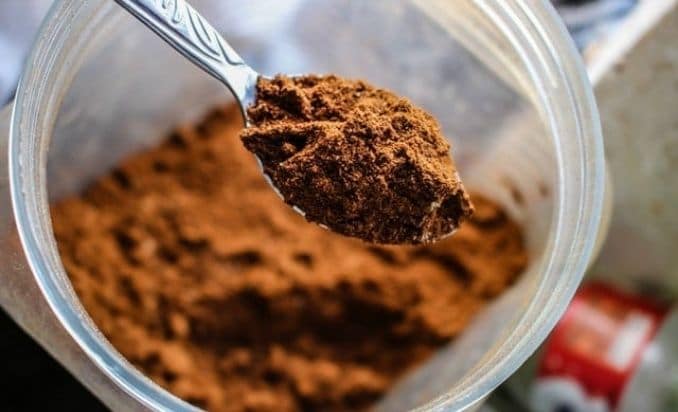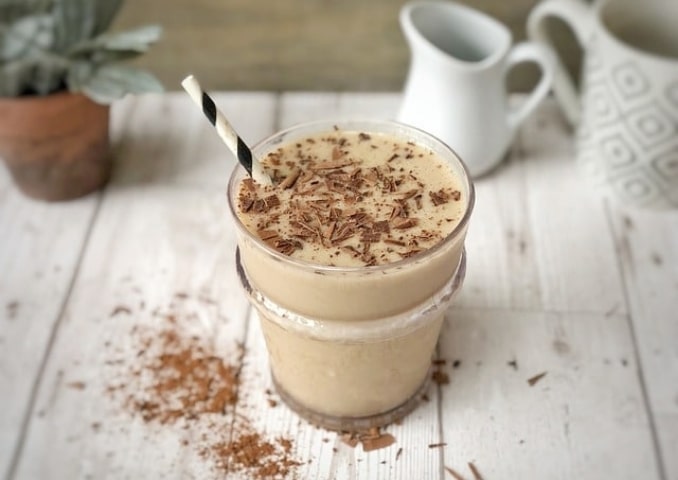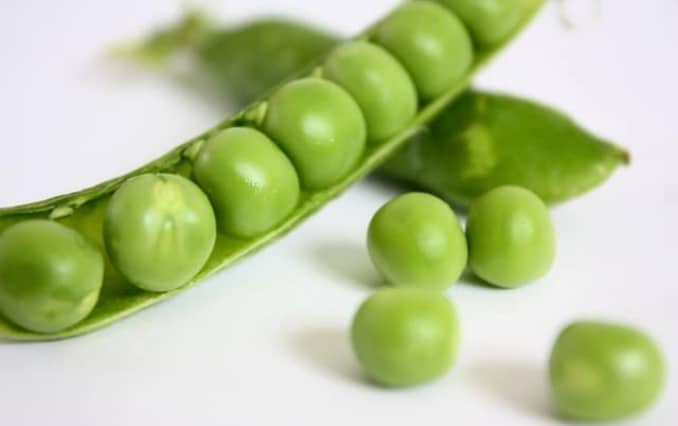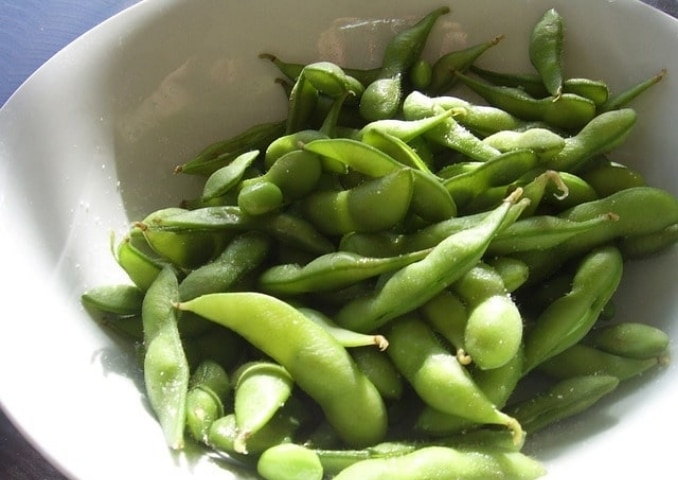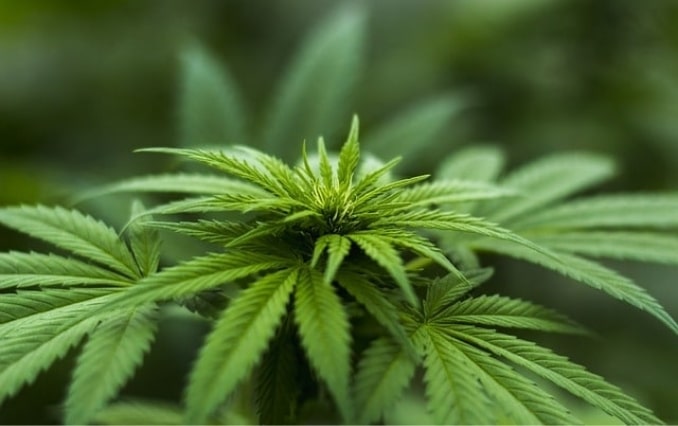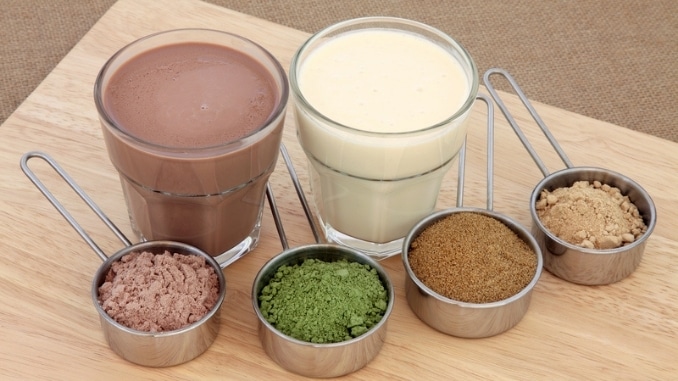
If you’d like to lose weight or build muscle, you may have wondered about protein powders. These nutritional supplements are extremely popular these days, with 19 percent more cases shipped in 2018 than in 2017 and a 24 percent increase in consumer demand since 2015.
It used to be that only vegans and vegetarians needed protein supplements to fill the gaps in their meatless diets but, today, national eating trends show that 60 percent of consumers want to get more daily protein. More than 43 million regularly use plant-based protein alternatives and 86 percent of those don’t consider themselves vegan or vegetarian.
There are a variety of reasons why people may decide to try protein powders, but what are these supplements, and do they do what they say they’re going to do?
What Are Protein Powders?
Protein powders are concentrated, dehydrated sources of protein made from various food sources. They’re usually mixed with water or other beverages or can be added to foods to boost protein content. The amount of protein per serving can vary from 10 to 30 grams, with muscle-building powders typically containing more than weight-loss powders.
There are usually other ingredients in the protein product too, so it’s important for consumers to read labels carefully. It’s common to find added sugars, with some products containing as many as 23 grams per serving. Some may also be high in calories, particularly when mixed with certain beverages like milk.
Nonprofit consumer advocacy group Clean Label Project released a report recently about toxins in protein powders. After testing 134 products, they found that many contained heavy metals like lead, arsenic, cadmium, and mercury as well as bisphenol-A (BPA), pesticides and other unhealthy contaminants.
These toxins make their way into the products during the manufacturing process and can also come from the soil where the plant ingredients were grown. Clean Label offers the results of its study on its website so that consumers can make informed purchasing decisions.
Why Do People Want More Protein?
The recommended daily allowance (RDA) for protein is about 46 grams a day for women and 56 grams a day for men, although it depends on body weight. To calculate your RDA, multiply your weight in pounds by 0.36. Athletes and very active people may feel better consuming 0.5 grams per pound.
To get an idea of about how much protein various foods contain, here are some examples:
- One egg = 6 grams
- A handful of nuts = 4-7 grams
- A cup of milk = 8 grams
- 1 cup of corn = 15 to 16 grams
- 3 ounces of chicken, skinless = 28 grams
- 3 ounces of turkey, roasted = 25 grams
- 3 ounces of salmon or tuna = 22 grams
- ½ cup black beans = 8 grams
- ½ cup of quinoa = 4 grams
Considering how many foods contain protein, you might think that most people would get enough from their diets, but that’s not necessarily true. According to a recent study, more than one in three Americans 51 and over aren’t meeting their daily recommended protein intake. Of those, one-third is up to 30 grams short per day.
Vegans and vegetarians are at risk for protein deficits since they don’t eat animal foods, which are some of the best sources of protein. In a 2014 study, scientists reported that individuals on a vegan diet had the lowest protein intake compared to those on a regular omnivorous diet.
Protein is important for a number of bodily functions, including:
- Building muscle, healthy tissue and cells
- Making skin, hair, and nails
- Repairing damaged tissues
- Making enzymes, hormones and other body chemicals
- Supports a healthy immune system
- Aids in digesting foods
- Oxygenates cells throughout the body
Protein also provides a number of health benefits, which is why many people are trying to get more into their daily diets:
- Reduces muscle loss
- Speeds recovery after exercise
- Curbs hunger and keep you feeling full, potentially supporting weight-loss efforts
- Boosts metabolism and fat burning
- Sustains energy
- May improve sleep, particularly in overweight and obese adults
Because the body doesn’t store protein, we need to replenish it through our diet consistently. Signs you may need more protein include:
- You’re having trouble losing weight
- Your metabolism feels sluggish
- You have trouble concentrating and focusing
- Your muscles aren’t growing as expected from your workouts
- You’re struggling with blood sugar highs and lows
- Your immune system is weak
- You are moody or irritable
- Your wounds take forever to heal
- You aren’t sleeping well
Which Protein Powder Is Best for You?
It’s not difficult to get enough protein from your diet, but protein powders can offer you a low-calorie, convenient option for boosting your protein intake, particularly if you want to lose weight or build muscle. Those who want to eat less meat may also turn to protein powders for help meeting their daily protein needs.
All protein powders are made from one or more food sources. Below, we list the most common, along with the pros and cons of each.
1. Whey Protein
Whey protein is made from milk and contains all the essential amino acids your body can’t make on its own. Because of that, it’s considered a “complete” form of protein and has shown in studies to help encourage weight loss, reduce hunger and support muscle growth.
Whey protein is particularly high in leucine, an amino acid involved in building muscle, which means that it is likely to help your muscles grow more than other types of protein. Its digested and absorbed easily by most people and may also help lower cholesterol and reduce blood pressure in those with hypertension.
Benefits: One of the best for building muscle and maintaining fullness. Works well when taken after a workout too. Low-cost powder that’s digested easily with additional health benefits.
Potential concerns: Those who are allergic to milk may have the same allergic reaction to whey protein. Whey is also heavily processed, which can degrade nutritional quality. Some products might contain artificial sweeteners or toxins — check your brand against the Clean Label list, and always read the ingredient list.
2. Casein Protein
Casein is also a milk-based protein and contains all the essential amino acids your body requires. It’s not as digested easily, however, and absorption takes longer because of a complex interaction with stomach acids.
This can be a benefit as it provides a sort of “time-released,” more lasting protein supply, which can help reduce appetite and help reduce muscle loss, although it won’t boost muscle growth as much as whey. It doesn’t contain as much leucine and instead is higher in the amino acids histidine, methionine and phenylalanine. It works well for sustaining muscle growth during diets and fasts or even overnight.
Like whey, casein also contains a number of other nutrients that can benefit the immune and digestive systems, help reduce blood pressure and sustain the cardiovascular system.
Benefits: A complete protein that helps maintain muscle during periods of fasting or low-calorie intake. Great for taking before bed to prevent muscle breakdown until breakfast. May help keep you feeling full longer and may also provide additional health benefits.
Potential concerns: Those who are allergic to milk may be allergic to casein, although many people who are lactose-intolerant can consume it safely. It’s usually more expensive than whey and doesn’t mix with beverages as well. Some people also believe that whey tastes better.
3. Pea Protein
This plant-based protein powder is typically made from dried yellow peas, which make it a good option for those with milk allergies or on a meatless diet. It’s gluten-free and hypoallergenic as it doesn’t contain any of the top eight food allergens, which are peanuts, tree nuts, eggs, fish, shellfish, cow’s milk, wheat, and soy.
Pea protein is considered a complete protein, as it contains all nine essential amino acids, but it is low in one (methionine) and doesn’t contain as many branched-chain amino acids (BCAAs) as whey, which are necessary for building muscle.
Pea protein is a good source of the amino acid arginine, however — more than whey — which is also essential for building muscle. So, although whey remains the gold standard for building muscle, pea protein can be a comparable alternative for those wanting to avoid dairy.
Like most proteins, pea protein can help reduce hunger and keep you feeling satisfied between meals. One study showed it was more effective at suppressing hunger than whey protein. It’s also rich in iron, which can be helpful for premenopausal women.
Benefits: ideal for vegans, vegetarians and those on a gluten-free diet as well as those with allergies. Although not as digested easily as whey, it’s considered one of the easier to digest plant proteins and doesn’t cause gassiness. It’s affordable and works nearly as well as whey for building muscle, recovering from workouts and reducing hunger.
Possible concerns: Those allergic to peas may also be allergic to the powder. It has a sort of gritty taste that some don’t like. Low in one vital amino acid. Can be high in sodium. May also contain toxins from the soil the peas are grown in. Check your brand against the Clean Label website.
4. Soy Protein
This protein powder is made from soybeans and is considered a complete protein because it contains all nine essential amino acids. Once the soybeans have been dried into soy flour, the protein is concentrated or isolated from that flour.
Soy protein is missing some amino acids needed for building muscle, however. These aren’t “essential” amino acids, but they are important for muscle synthesis, which means that soy may not boost muscle growth quite as much as whey, casein or pea. It is a good plant-based protein alternative, however, for those avoiding animal foods.
Studies have indicated that soy protein may boost weight loss just as well as animal-based proteins. In one 12-week study, participants consuming soy-based meal replacements lost just as much weight as those consuming non-soy-based replacements. Other studies have shown mixed results.
Soy does contain compounds called “phytoestrogens” that may disrupt hormone function in some cases. Some men avoid soy for fear that it will lower testosterone levels. However, most studies show that men can safely consume soy protein in moderation. Women concerned about estrogen, such as those with a higher risk for estrogen-driven breast cancer, may also have concerns about consuming soy.
Soy protein also contains phytates, which can reduce mineral absorption, and isoflavones that may interfere with thyroid function, though studies have shown only a very mild effect. Soy products are also frequently genetically modified organisms (GMO).
Benefits: Provides a good plant-based protein and enhances muscle growth to some degree. May help reduce hunger and encourage weight loss.
Possible concerns: Not as effective as whey or casein in building muscles. May slightly affect hormone function and mineral absorption, and often comes from genetically modified soybeans. These have shown no negative health effects in studies, but some prefer to avoid them.
5. Hemp Protein
This is another plant-based protein made from the seeds of the hemp plant, which is part of the cannabis family. Although the protein is derived from a plant that’s closely related to marijuana, it does not contain any of the mind-altering THC (tetrahydrocannabinol) that marijuana does.
Hemp is also considered a complete protein, containing all nine essential amino acids. What many people like about this protein is its nutty flavor as well as the fact that it contains additional nutrients, including omega-3 fatty acids and fiber. Most hemp protein powders contain 7 to 8 grams of fiber per quarter cup.
Because of its extra nutrients, hemp is often referred to as a “superfood.” It tends to be less processed than other protein powders, so is considered a more “natural” source of protein. Like other nonanimal-based proteins, it’s vegan-friendly and hypoallergenic. It’s digested easily and breaks down quickly in the body, although heat processing can disrupt that quality, so it’s best to look for powders made from cold-pressed seeds.
Hemp has more fat than other proteins, however, which means hemp protein products may be higher in calories. It’s also lower in protein than other food sources, typically delivering only about 12 grams per four tablespoons as opposed to about 20 grams in other plant-based varieties.
Benefits: Some prefer the nutty taste, although others don’t like it as well. Perfect for those avoiding animal protein sources and those with allergies. Provides heart-healthy essential fatty acids, which may help support cardiovascular health. Good source of fiber and a variety of minerals. Works well between meals. All hemp sources are non-GMO.
Possible concerns: Has a gritty texture. Not as robust a protein source, so may not boost muscle building as well as other options. Low in amino acids lysine and leucine and BCAAs, which are important for muscle growth. The high-fiber content can make some people gassy or bloated. Usually, one of the most expensive protein powders. Tends to be higher in calories. Those allergic to hemp should avoid hemp powder.
6. Brown Rice Protein
This is another vegan-friendly option made from brown rice. It’s naturally dairy- and gluten-free and tends to be digested easily, so it’s ideal for those with allergies or sensitive stomachs.
Brown rice protein is not considered a complete protein as it’s missing some of the essential amino acids the body needs. That’s why you’ll often find brown rice protein mixed with other types like pea protein to form a complete protein supplement. It is absorbed quickly, however, which helps support muscle building after a workout.
What this protein does have is additional nutrients, including vitamin B and fiber. It also has healthy antioxidants, iron and vitamin C and aids in muscle recovery and fat burning. If you struggle to keep your blood sugar balanced, this is the protein for you — several studies have shown that brown rice protein helps reduce blood sugar spikes.
Benefits: Nutritious protein supplement that can help stabilize blood sugar, encourage weight loss and help maintain consistent energy. Provides additional nutrients, including antioxidants. Hypoallergenic and easy to digest. Great for vegetarians, vegans, those with allergies and people with lactose or gluten intolerance. Less processed than some options.
Possible concerns: Because arsenic has been found in rice, some brown rice proteins may be contaminated. Check the Clean Label list. Reputable companies will test to ensure arsenic levels are safe. This protein has a chalky texture some won’t like. It’s also low in some amino acids needed for muscle building.
7. Egg White Protein
Obviously, this one is made from eggs. The egg yolks are separated out, and the whites dehydrated to make the powder. This protein is a complete protein, containing all nine essential amino acids, although the amounts are lower than other options like whey and casein. It is a good source of BCAAs and leucine.
Egg protein is absorbed easily and dairy-free, so it can work better than whey or casein for those who have milk-based allergies or sensitivities. It’s also lower in carbohydrates than other protein options, making it a good option for those who want to lose weight or who have prediabetes or diabetes. A serving of whey protein can contain 10 grams of carbs, for example, while an equal amount of egg protein has only 3 grams.
This is a great option for mixing with various beverages and foods as it has a mild taste. It’s also low in fat and calories and digests more slowly than whey protein, which makes it a good option for slowing muscle breakdown.
Egg protein powder is not quite as satiating as other options, though, so try it and see if you get hungry again later. It may not work as well for weight loss.
Benefits: Complete protein that works well for reducing muscle loss. A low-fat, low-calorie option with few carbs. Works best as a pre-workout boost. A good option for those who want to keep blood sugar levels balanced.
Possible concerns: Those who want to avoid animal-based proteins should stay away from egg protein. Some may be allergic to eggs and thus should avoid egg protein powders. Tends to be more expensive than other options and may not be as effective for weight loss.
For your guide to the best foods to heal your body, check out The Best Foods that Rapidly Slim & Heal in 7 Days, here!

